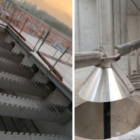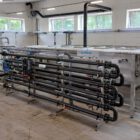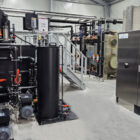Ultrapure water is the highest quality level of water that is virtually free of impurities. It is used in highly sensitive processes in the semiconductor industry, pharmaceuticals, laboratories and power generation. The production and handling of ultrapure water requires state-of-the-art technologies and a deep understanding of the physical and chemical properties of water. This article provides a comprehensive look at the definition, production, applications and challenges of handling ultrapure water.
Table of contents
Definition and quality characteristics of ultrapure water
What is ultrapure water?
Ultrapure water is water that has been freed from almost all impurities such as dissolved salts, organic substances, particles, microorganisms and gases using multi-stage purification processes. It has extremely low conductivity values and high chemical purity.
Quality parameters of ultrapure water
Leitfähigkeit: < 0,1 µS/cm (oft bis zu 0,055 µS/cm bei 25 °C).
Resistance: > 18.2 MΩ-cm.
TOC (Total Organic Carbon): < 1 ppb (parts per billion).
Partikelkonzentration: < 10 Partikel/ml (abhängig von der Größenkategorie).
Bakterienkonzentration: < 1 KBE (Kolonienbildende Einheit) pro 100 ml.
Dissolved gases: Concentration of oxygen and carbon dioxide in the lower ppb range.
Production of ultrapure water
1. pre-treatment of the raw water
Pre-treatment is the first step in removing coarse impurities and includes:
Sand and activated carbon filter: Removal of suspended solids, chlorine and organic compounds.
Softening: Reduction of water hardness to prevent scaling in downstream processes.
Precipitation: Removal of heavy metals and colloidal particles.
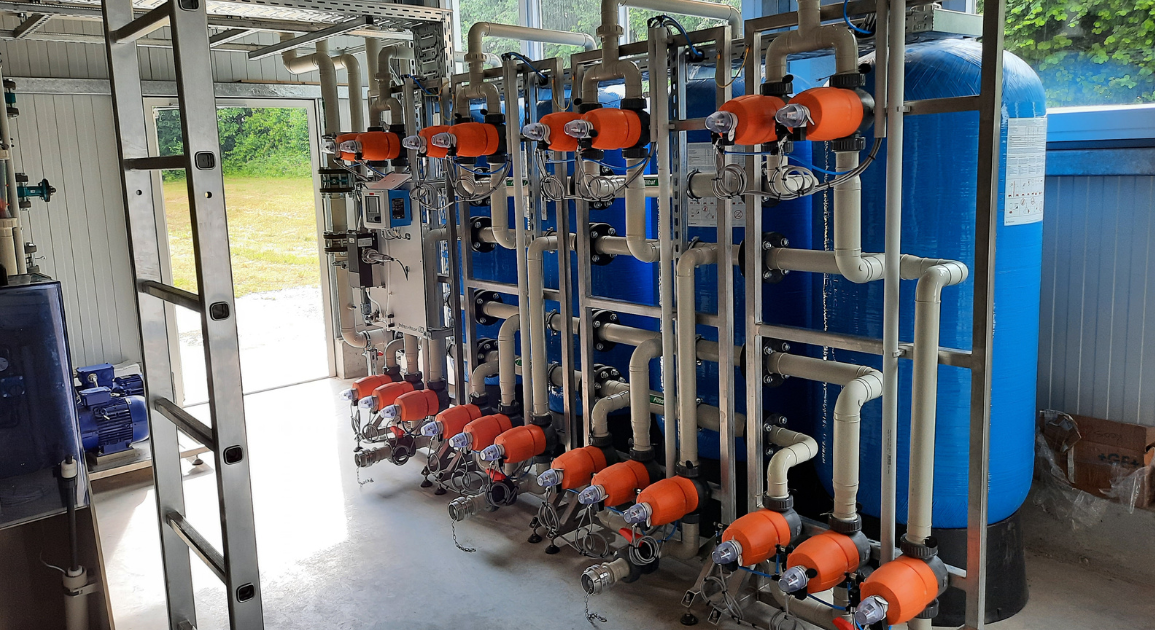
Photo: Our double filtration system with sand and activated carbon
2. Reverse osmosis (RO)
Reverse osmosisremoves up to 99 % of dissolved salts and organic substances. It serves as a central preliminary stage in ultrapure water treatment and significantly reduces the load on downstream systems.
3. electrodeionization (EDI)
EDI combines ion exchange and electric fields to continuously remove ions. This technology is particularly efficient and reduces the need for chemicals for resin regeneration.
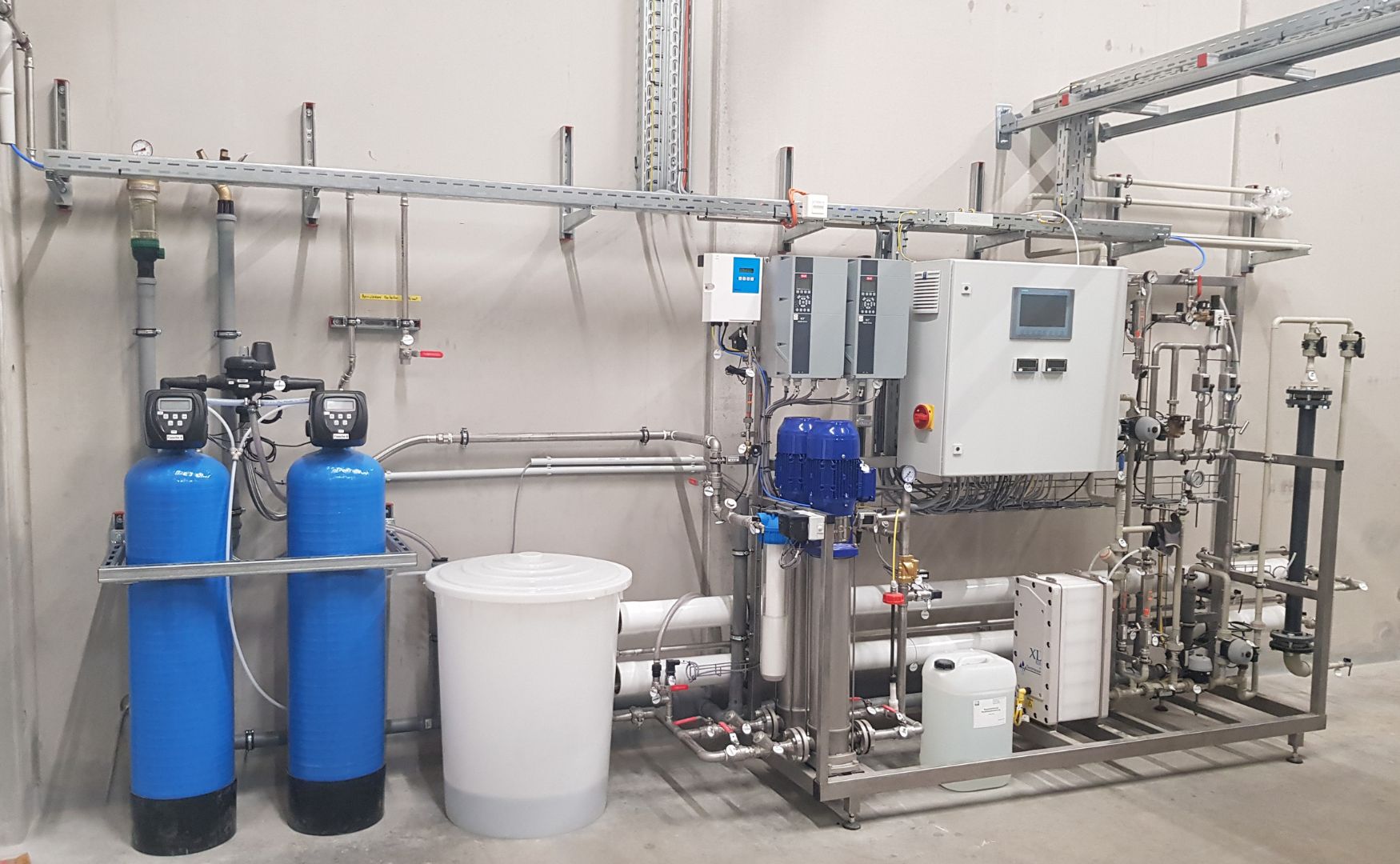
Photo: Our ultrapure water system with softening, reverse osmosis and EDI, for small water flows
4. ultrafiltration and microfiltration
Membrane technologies remove particles, colloids and microorganisms. Ultrafiltration is often used as a final stage to minimize the particle concentration.
5. polishing through ion exchange and activated carbon
The last traces of ions and organic compounds are removed using specialized resins and activated carbon. This is a critical step in achieving ultrapure water quality.
6. UV irradiation and ozonization
These processes reduce the TOC content by oxidizing organic substances and disinfect the water at the same time.
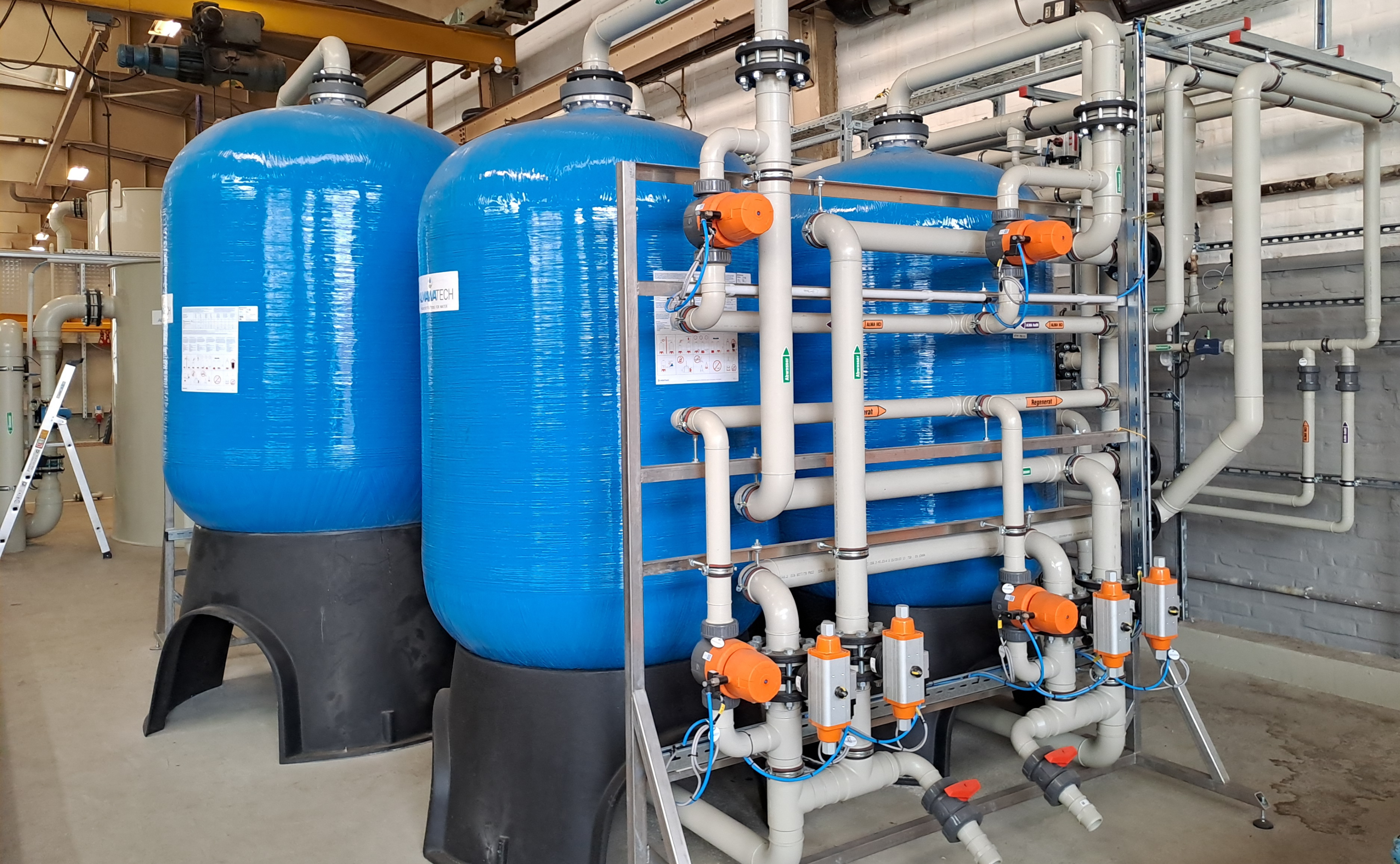
Photo: Our selective ion exchanger system with regeneration system
Applications of ultrapure water
1. semiconductor and electronics industry
Ultrapure water is essential for the cleaning of wafers and the production of microchips. Even the smallest impurities can lead to production errors.
2. pharmaceutical industry
Water for injection (WFI): Ultrapure water is used for the production of sterile solutions and for cleaning systems.
Production of medicines: Ultrapure water serves as a solvent and reaction medium.
3. power plants and power generation
Boiler feed water: Ultrapure water minimizes corrosion and deposits in steam boilers, thereby increasing efficiency.
Cooling systems: Ultrapure water is used in closed cooling systems to prevent chemical reactions and scaling.
4. food and beverage industry
Ultrapure water is used in the manufacture of products such as baby food, dried foods and beverages. It guarantees consistent quality and purity.
5. laboratories and research facilities
In analytical laboratories, ultrapure water is used for chemical and biological tests as it does not interfere with the results.
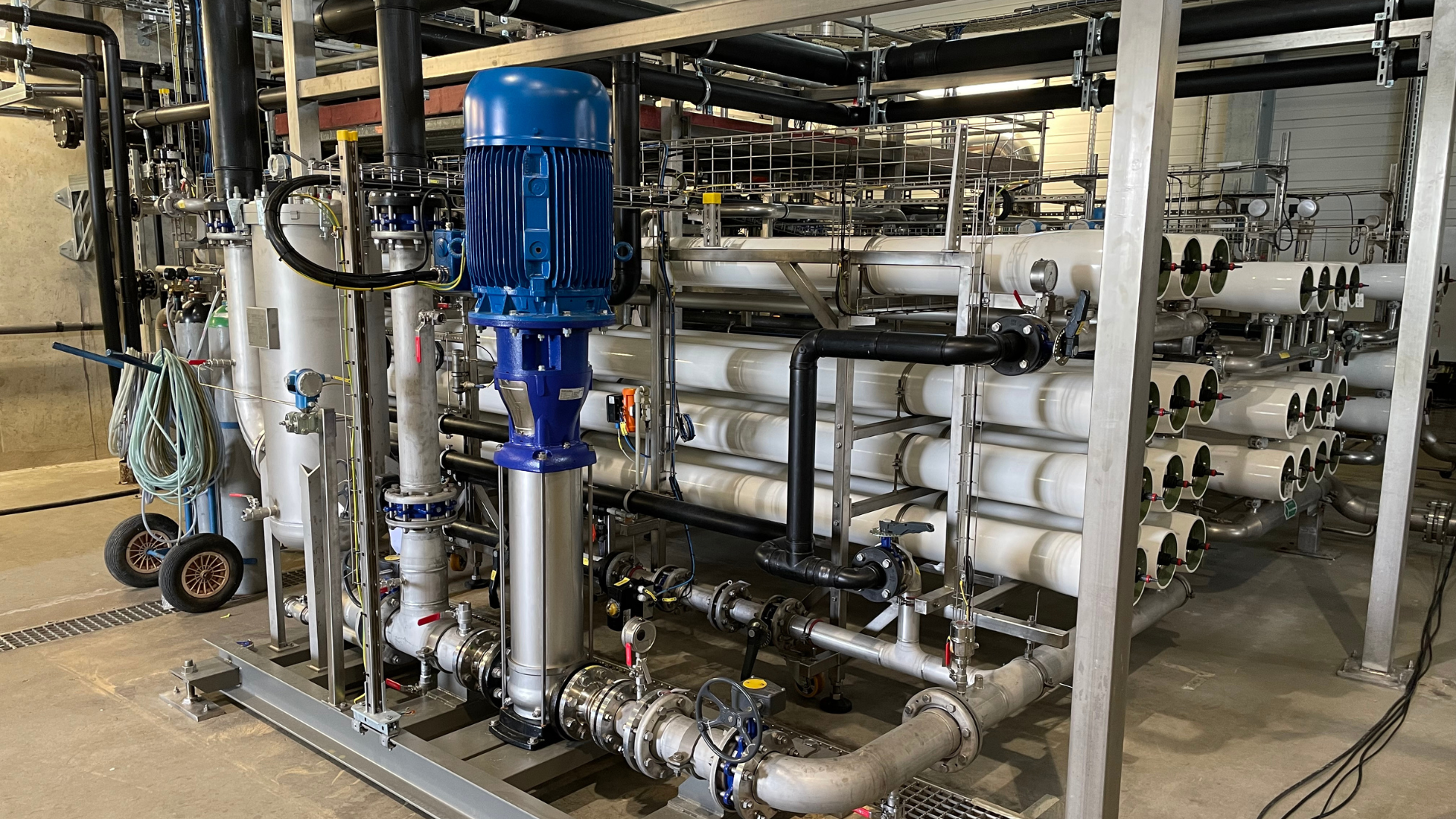
Photo: Our reverse osmosis system for large water flows
Challenges in practice
1. corrosion due to ultrapure water
Ultrapure water has a high solubility and can corrode metals. Systems that come into contact with ultrapure water must therefore be made of corrosion-resistant materials such as stainless steel or plastics.
2. high operating costs
The production and maintenance of ultrapure water quality requires energy-intensive processes and continuous maintenance. However, the selection of efficient technologies can significantly reduce operating costs.
3. biofouling and scaling
Despite high purity, microorganisms and mineral deposits can occur. Regular disinfection and pre-treatment are necessary to avoid these problems.
4. risk of contamination
Even the smallest impurities can affect the quality of ultrapure water. The systems must therefore be hermetically sealed and continuously monitored.
Technological innovations
1. real-time monitoring
Sensors for conductivity, TOC and particle concentration enable precise monitoring and immediate reaction to deviations.
2. hybrid process
The combination of technologies such as EDI and ultrafiltration increases efficiency and reduces energy consumption.
3. self-cleaning membranes
Innovative membranes with fouling-resistant coatings reduce maintenance costs and improve service life.
Conclusion
Ultrapure water is an essential component of many highly sensitive applications in industry and research. Its production requires advanced technologies and precise process control. With increasing demands for purity and sustainability, technologies are also constantly evolving to increase efficiency and minimize environmental impact.
For further information on our products, please feel free to contact us at any time!


